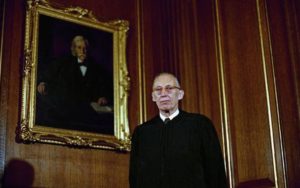ESG investing has been around for decades, but it looks like Senator Mitch Mcconnell doesn’t know it.
ESG (Environmental, Social, and Governance) investing is an investing strategy that invests in companies that engage their businesses in actions that advance social purposes, such as protecting the environment, eliminating discrimination, and promoting corporate transparency and accountability.
ESG investing has been around since the 1970s and it now accounts for about $3 trillion in assets under management.
But, as a man who has been in the Senate since 1984, McConnell wants to ignore this development. Maybe it is because he knows Republicans are the party of big business. That has been the case since before the New Deal and it was embodied by the Reagan Administration.
Since then, a split has emerged between some segments of big business over climate change and social issues, but this has not impacted the Republican’s role as the party of huge corporations. Nor, has it impeded its ability to rake in hundreds of millions annually in corporate contributions to pass pro-business legislation, regulations and make favorable changes in the tax codes and the federal budget.
The Republican’s pro-corporate policies were formalized when Lewis Powell sent his

infamous memo that essentially said “capitalism is under attack” to the U.S. Chamber of Commerce in 1971.
In that memo, written a few days before he assumed his new position on the Supreme Court, the Californian said the free enterprise system was under attack from liberal arts departments at college campuses, the New Left, television, Ralph Nader, the clergy, books, and intellectual journals. Looking back, Powell provided the fuel to start the culture wars that have become the daily fodder for the right-wing.
Powell wrote the Memo to the head of the U.S. Chamber of Commerce, the nation’s top lobbyist for the largest US corporations. He chose this group because these huge multi-national corporations were natural allies for Republicans. Powell knew big business was always going to work with the Republicans.
Powell’s Memo encouraged corporations not to compromise with critics, and to embark on a national, multi-level intellectual offensive against what he thought were any teachings, media coverage, or sermons, which disparaged the free-enterprise system.
Powell encouraged corporations to take “more direct political action,” and to take the lesson from labor unions that “political power is necessary; that such power should be assiduously cultivated and when necessary, it must be used aggressively and with determination and without embarrassment and without the reluctance which has been so characteristic of American business.”
So, it is astounding when McConnell told corporations to not get involved in rebutting or working to repeal Georgia’s voter suppression legislation. On April 6, McConnell said “My warning, if you will, to corporate America is to stay out of politics. It’s not what you’re designed for.”
Why would McConnell turn on his benefactors? Or, is McConnell just posing for his party loyalists?
Rewriting ESG’s History and the New Big Lie
Here are a few theories:
- McConnell is now making historical revisionism an official Republican policy. As we saw during the Trump administration, trying to convince the public that what they just saw was an illusion, McConnell is now doing this with a verifiable history.
- McConnell is threatening the business community. His statement is a warning to stay out of Republican issues unless they give card Blanche support and contribute large amounts to support Republican policies.
- Republicans are desperate that their voter suppression strategy now moving ahead in 43 states is going to backfire and snowball into a national anti-Republican movement.
- McConnell’s anti-big business rhetoric is part of a new limp attempt to reposition Republicans as champions of the working class because they have abandoned efforts to attract minority voters.
Desperation is a common denominator here. Somewhere in the archives of the Republican National Committee is a confidential report that shows American demographics are changing into a Democratic block. Racial minorities, young people, new immigrants, college-educated voters, and people concerned with social issues will not have anything to do with Republicans.
As all this relates to big business, the evidence is here today that businesses worldwide have already adopted investment policies that directly contradict Republican policies, Republican proposed legislation, and all issues related to the Republican’s version of social reform.
All this is nowhere in the form of the ESG investment movement.
Global ESG Business Dwarfs the Republican Threat
ESG investing has now accumulated some $3 trillion in assets worldwide. This includes companies, foundations, pension funds, endowments, and municipalities that employ investment policies that meet various social policy screens and operational practices. These investments are then made in individual companies that meet business goals that are widely regarded as being positive for society.
ESG investing is the most recent evolution of Socially Responsible Investing (SRI) that began in the late-1970s as a response to apartheid policies in South Africa. At the time SRI was being developed, South Africa was under intense international and United Nations scrutiny for its repressive policies against its black citizens.
Domestically, U.S. corporations were still adjusting to the legislative and social advances made by the Civil Rights movement about a decade earlier. Acknowledging the grass-roots and legislative achievements from this legislation, activists turned to the power of corporate pension funds to promote change.
One of their first goals was to use pressure on South Africa to change its apartheid policies towards its African citizens. To do this, activists began a campaign to publicize, educate and campaign for restricting the investment of pension fund assets and boycott companies that had significant business dealings, investments, or operations with South Africa.
One of the first pension funds to adopt SRI policies was the Jane Addams Hull House in Chicago. As a reporter with the trade publication Pensions & Investments in the mid-1970s, I covered this story as being a national breakthrough.
The Hull House pension fund was small even at the time, a few million dollars, yet its pension fund board followed the original mandate of Jane Addams, who along with Ellen Gates Starr, founded a settlement house in Chicago’s West Side for new, indigent immigrants, in 1889. As the neighborhood expanded, Hull House provided social services to Italian, Irish, German, Greek, Bohemian, Russian, and Polish Jewish immigrants. By the 1920s, African Americans and Mexicans also were being served.
From this social activist framework, the Hull House pension fund adopted a South Africa-

free investment mandate following the Sullivan Principles. These principles were developed in 1977 by Rev. Leon Sullivan, a Black member of the General Motors Pension Fund, which at the time was the largest auto pension fund in the U.S. with $11.5 billion in assets. These principles were based on ethical investing standards which called for eliminating discriminatory racial and social practices between the races in South Africa. At this time, GM was the largest single employer of blacks in South Africa.
By 1980, several endowments (Colby College, University of California-Berkeley, Brandeis University the University of Wisconsin, Yale), municipal funds (the Connecticut Retirement Funds, City of Hartford), and unions (AFL-CIO) voted to divest their investments in South Africa. Adamantly opposed to outside interference, the South African government refused to abandon its apartheid policies, and by 1991 over 100 companies had stopped doing business with South Africa.
McConnell Is Ignoring ESG’s Past and the Present
So, what does this have to do with Sen. Mitch McConnell?
McConnell certainly knows history. He is well aware of the famous 1971 memo from Lewis F. Powell that encouraged corporations to become more active politically to fight the “broad attack” on the free-enterprise system from anti-American forces. Powell wrote the Memo shortly before he was named a Supreme Court Associate Chief Justice, as the successor to Justice Hugo L. Black.
Powell’s Memo became a cornerstone of the political right’s attack on social liberals, and a blueprint for organizing at all levels against any type of enemy it discovered.
McConnell’s admonition that corporations should refrain from interfering in Georgia’s decision to seriously curtail voting rights is a weak attempt at re-writing history. Since the 1970s, corporations have been politically active. The US Chamber of Commerce has led political attacks from the right for decades and there were no objections from McConnell and the Republicans, who benefitted from corporate lobbying and contributions.
But McConnell’s position is that corporate activism from the left is entirely un-American. By protecting Georgia’s restrictive new voting laws, McConnell knows his party is on a collision course with demographics and daily practices of the contemporary world. But as a conservative, he has to ignore or delay change.
The good news is that the $3 trillion ESG investment movement is influencing corporate behavior weekly, as evidenced by the news posted on the Principles for Responsible Investment website. So, while the investment world ignores McConnell, the U.S. and global financial institutions and businesses are continuing to pursue social justice, environmental, sustainable development, anti-human trafficking, and to the surprise of many Republicans, even democratic voting standards.
So, while McConnell decries business interference in advancing the anti-democratic Republican agenda, he has been outflanked by global business and other financial institutions. And in the world of Republican political measures, where everything is measured in money and donations, these groups hold more cards than McConnell.












[…] Source: theprogressiveinvestor.org […]
[…] These two top issues for the 2018 to 2020 period should be of interest to Republicans, who are especially critical of labor rights and how corporations should refrain from entering the political arena. Apparently, the corporations are bucking both of those suggestions by Congressional Republicans. […]